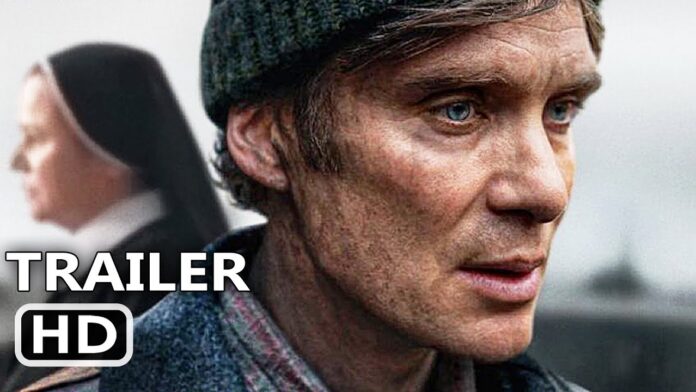Fresh off his Oscar win, Cillian Murphy leads the adaptation of Claire Keegan’s novel, Small Things Like These, exploring catholic corruption in a rural Irish town.
Cillian Murphy, riding high after his Oscar win for Oppenheimer, returns to the big screen with a dramatic shift in tone for the Irish drama Small Things Like These. Directed by Tim Mielants, the film is an adaptation of Claire Keegan’s best-selling novel, which delves into the hidden darkness within the Catholic Church in a small Irish community.
Murphy portrays Bill Furlong, a coal worker whose quiet life begins to unravel when he uncovers disturbing secrets at the local convent. Set against the bleak backdrop of rural Ireland, the film focuses on Furlong’s discovery of the abuse and mistreatment of women in the Magdalene Laundries, where so-called “fallen women” were subjected to exploitation and cruelty.
The first trailer for Small Things Like These shows Murphy in a deeply introspective role, using his natural Irish accent as Furlong grapples with his personal trauma and the weight of confronting the town’s dark secrets. The film promises to showcase Murphy in a quiet, subdued performance that contrasts sharply with his intense turn as J. Robert Oppenheimer.
The film’s ensemble cast features some of Ireland’s top talent, including Michelle Fairley as Mrs. Wilson, Clare Dunne as Sister Carmel, Emily Watson as Sister Mary, and Eileen Walsh as Bill’s wife, Eileen. The drama unfolds as Furlong navigates the tension between protecting his family and challenging the systemic abuse perpetuated by the convent, with his wife warning him to “stay on the right side of people.”
The film, inspired by real-life events surrounding the Magdalene Laundries, promises to confront the complex relationship between the church, morality, and silence in small-town life. Fans can expect a gripping, emotionally charged performance from Murphy as his character faces a moral dilemma that could change his life and the lives of those around him.
Small Things Like These is set to hit cinemas in the UK and Ireland on 1 November 2024, marking a poignant return for Murphy in a film with deep cultural and historical roots.
Analysis:
Political:
Small Things Like These directly engages with Ireland’s dark history of Catholic Church abuse. The Magdalene Laundries were an infamous part of this legacy, operating workhouses that exploited vulnerable women, often with the complicity of local authorities. This film taps into contemporary political discussions about the lingering impact of institutional abuse, and the long, painful path towards truth and reconciliation in Ireland. The film’s release may reignite calls for justice and reparations for the survivors of these historical wrongdoings, as well as demands for more transparency from the Catholic Church.
Social:
The social implications of this story are profound. Murphy’s portrayal of Bill Furlong is reflective of a man caught between social conformity and moral responsibility. The film highlights how communities often turned a blind eye to systemic abuses in favor of preserving the status quo, a theme still relevant today in discussions about power, accountability, and complicity. As Furlong decides whether to confront the town’s corruption, viewers are forced to reflect on the human cost of silence and the courage required to stand up to powerful institutions.
Gender:
The gendered aspect of this narrative is significant, as it highlights the specific ways in which women were oppressed under the guise of religious morality. The Magdalene Laundries specifically targeted women deemed “fallen” due to pregnancy out of wedlock or other moral “failings,” subjecting them to harsh labor and isolation. The film critiques this historical gender-based abuse and brings awareness to how women’s bodies and lives were controlled by societal and religious standards. Murphy’s character’s internal struggle becomes a reflection of the broader societal failure to protect vulnerable women, and the film’s female characters, including those played by Emily Watson and Clare Dunne, personify the institutionalized cruelty.
Economic:
The economic dimensions of the story center on the exploitation within the Magdalene Laundries, where women were forced to work in unpaid labor, contributing to the financial stability of these religious institutions. This highlights the intersection of economic power and religious control, with marginalized women as the primary victims. The film serves as a reminder of how economic exploitation is often justified under moral or religious pretenses, and how such exploitation can become institutionalized in societies seeking to maintain control over the most vulnerable.
